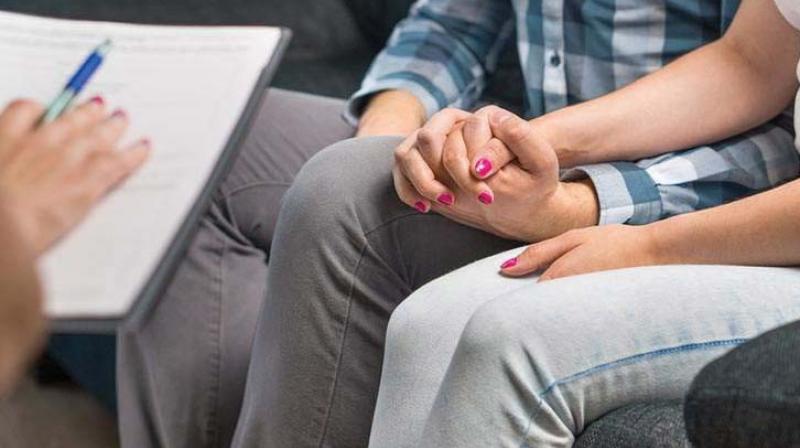Sorting woes before vows

Twenty-six-year-old Shweta Singh (name changed) pins her lack of faith in the institution of marriage on her parents’ divorce. Her reluctance to considering a match resulted in multiple rejections until she was introduced to a marriage coach by her relative. “It helped me build trust and made me believe that all marriages don’t always fail. I understood that through proper communication and understanding, couples can build strong bonds,” says Shweta.
A fairly tested and accepted practice in the West, relationship counselling goes beyond helping married couples resolve their differences. In fact, most couples see value in seeking professional help even before saying ‘I do’. These licensed therapists or coaches serve as neutral bouncing boards to initiate conversations about behavioral issues that prospective couples may want to address. This serves as an effective tool to help to-be brides and grooms understand and establish realistic goals and expectations. Leena Paranjpe - one of the few marriage coaches in the country - feels that her role is far more effective than that of a marriage counsellor. In fact, it’s also dubbed as an action-oriented therapy that helps premarital couples understand potential conflict points that may arise and possible resolutions that they could consider. “There is a significant difference between coaching and counselling. Both can improve your relationship, but it’s crucial to choose the right approach for a couple before the
ir marriage,” says Leena, who feels her role offers a practical approach to a problem. “But what’s important is that marriage coaching helps couples to set marital expectations which is crucial,” says the coach.
In another case, Khar-based resident Vishal Param approached a marriage coach for his niece Rashmi (name changed) after she got engaged at the age of 23. “They were fighting almost every day on every small issue and that was alarming to us. I understand that at this age, my niece lacked the passion and understanding but for us, it was about saving her engagement so that they can get married,” reveals Vishal. Rashmi is married for five months and Vishal credits this to the coaching session that helped her understand the importance of letting go of certain things for the larger picture. “If we as parents teach them, they won’t understand but with a proper setting, they feel convinced and implement what they learn,” insists Vishal.
Leena deals with pre-marital, early post and late post marital couples and explains that the technique is different in all three instances. She also informs that most of the cases that come to her are those who have been married for at least five years or pre-marital ones who are either scared of getting married or doubt their partners. She then helps them to resolve their issues through a ‘probing technique’. “It is the technique which is built with a questionnaire to know their current issues, upbringing, behavioural patterns, likes, and other basic information,” says the coach. Leena further explains that in coaching, she holds the couple accountable by keeping a track of their attitude towards each other in a structured way. “Couples are happy to know that there is someone whom they are answerable to. Initially, the other partner resists but once they experience the change, they come together for every session,” she assures. In some instances Leena also makes it a point to live with the couple to understand the behavioural patterns.
Thirty four year-old Aditya Kambli is married to Avik (name changed) and they had their share of humiliation and non-acceptance, owing to the social stigmas around gay relationships. But it was the pre-marriage coaching session that helped them take their stand. “I was living with my boyfriend and we were like ‘there is no role model for us’, we couldn’t understand each other’s behaviour but we knew we love each other and wanted to live together,” reveals Aditya. He also insists that coaching helped them both to deal with issues between themselves as well as with the society and family. “We understood that marriage is an interdependent thing and it has to be dealt with responsibility,” says Aditya.
While many people get married in pursuit of happiness, there are ample of divorces taking place at the same time. And Leena believes that there are no conscious actions taken to be responsible to save the marriage. “Marriage is a project of two minds, ideologies and bodies and once it is done, you have to treat it as a project and you have to handle it carefully. So it is not a compromise or contract but a bond,” muses the coach. She suggests marriage coaching is more important for pre-marital cases for effective communication. “Connectivity is lacking in most of the couples. Another issue is the communication gap. There should not only be open communication but effective communication. Couples need to take smart actions respecting their partner’s decision.” she says.

